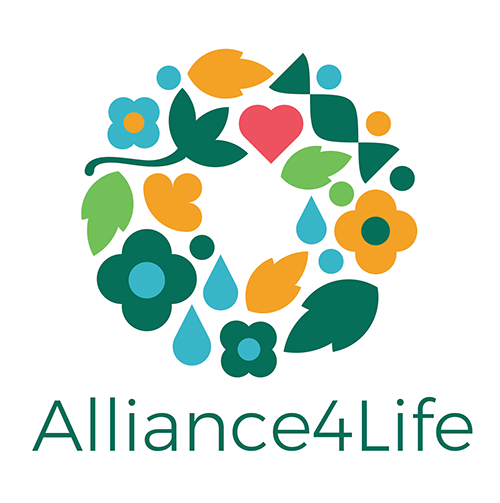
Alliance4Life Micro-Credentials Pilot: Empowering Lifelong Learning and Career Advancement Across Europe
Micro-credentials are becoming an increasingly popular tool at European universities as part of lifelong learning initiatives. These short, targeted learning programs offer individuals the opportunity to gain specific skills and competencies in a flexible, accessible format. Designed to meet the needs of the rapidly evolving job market, micro-credentials are often developed in collaboration with employers to ensure their relevance. As they provide recognition of specialized learning, these certifications can enhance employability, support career advancement, and complement traditional degree programs, making them a valuable resource for both professionals and recent graduates. Member institutions of Alliance4Life join forces to create a common E-learning platform that will consolidate accredited professional development courses from all partners targeting the scientific community and research management professionals.
Czech universities have already begun to offer so-called micro-credentials as part of lifelong learning programs. This concept aims to help qualified employees acquire the skills they lack in the dynamically changing job market while also enhancing the resumes of recent graduates. The current job market often demands knowledge that employees could not acquire during their studies.
The idea that education lasts a lifetime is no longer true. Rapid technological advancements and a constantly evolving globalized world are making knowledge outdated faster than ever and driving the need for new skills and expertise. In response to this growing demand from both the labour market and society, specialized professional education in smaller, focused formats, coupled with verifiable certification of acquired competencies, has emerged as a practical solution.
The introduction of micro-credentials aims to increase the accessibility and flexibility of education, enabling individuals to demonstrate their qualifications or adapt them when changing careers. Designed as a supplement and extension to traditional university education, micro-credentials offer new, flexible, and accessible learning opportunities.
Micro-credentials are part of a broader European initiative to establish a lifelong learning system recognized across the EU, enhancing the accessibility and transferability of education. Members of Alliance4Life see significant potential in micro-credentials and view them as a crucial step in the evolution of education. For this reason, the micro-credentials pilot was proposed as one of the work packages within the currently running A4L_BRIDGE project.
The Gold Standard for Lifelong Education
Micro-credentials are set to play a key role in university course offerings, particularly because their highly specialized content is designed to meet employer demand, and the skills acquired will be recognized across the EU. The micro-credential pilot, coordinated by CEITEC Masaryk University, will focus on professional education programs tailored to respond flexibly to the current needs of the labor market, specific employers, and individuals. These courses are aimed at doctoral candidates, recent graduates, and professionals with extensive experience in their fields. The outcomes are internationally recognized and easily verified through Europass, with electronic records of acquired competencies stored in a unified verification system. Masaryk University has experience with this system and will support other Alliance4Life member institutions in implementing micro-credentials at their home institutions. The course offer will than be consolidated and offered at the Alliance4Life E-learning platform.
With the launch of a unified verification system, the Czech Republic is now on par with countries like Ireland and the Netherlands, which are among the few in Europe with national frameworks for issuing micro-credentials. A key feature of micro-credentials is the high quality of the courses. They are considered the most prestigious aspect of lifelong learning, and Alliance4Life members place great emphasis on maintaining the quality of their offerings. For the successful growth of micro-credential-based education, it is crucial that the scientific and research management community, along with employers, understand how to effectively utilize and apply this tool.
While it might seem logical to consider modifying traditional higher education programs to better align with current demands, stakeholders agree that changes in accredited fields are complex. Micro-credentials will continue to play a vital role in lifelong learning, regardless of potential adjustments to classical education. Adapting standard degree programs to technological advancements is less flexible due to accreditation requirements.
Traditional programs are more rigid and provide a broader foundation within a field, making them less responsive to immediate labour market needs or specific demands from applicants. Micro-credentials are designed to maintain the same quality assurance as standard education but offer a more targeted and flexible approach, quickly addressing new professional development needs.
The structure of micro-credential courses can vary significantly depending on the subject, with course supervisors having full discretion over the content. Each course undergoes an internal approval process to ensure quality standards are met. Some courses can be completed in a weekend, while others span an entire semester. Enrolment requirements range from a high school diploma for some courses to at least a bachelor's degree for others. Courses are measured in credits, with one credit representing 25 to 30 hours of workload. The Czech national framework recommends a range of 1 to 60 credits, meaning courses can vary from one-day sessions to semester-long or, in rare cases, multi-semester programs.
Applicants are informed in advance about the admission criteria, course structure, and completion requirements. The ultimate goal is to build a functional and sustainable system that offers a broad range of micro-credentials, maintaining high quality standards and making education accessible not only to the research community but to anyone with an interest in the subject.
The Alliance4Life micro-credentials pilot represents a forward-thinking approach to lifelong learning, offering flexible, specialized education that addresses the evolving needs of today’s job market. By combining the expertise of member institutions and creating a unified e-learning platform, Alliance4Life is paving the way for a new era of professional development. Whether for recent graduates looking to enhance their resumes or seasoned professionals seeking to update their skills, micro-credentials provide a valuable and accessible path to career growth. As this initiative continues to expand, it promises to play a key role in shaping the future of education and workforce development across Europe, contributing to a more balanced European Research Area.

